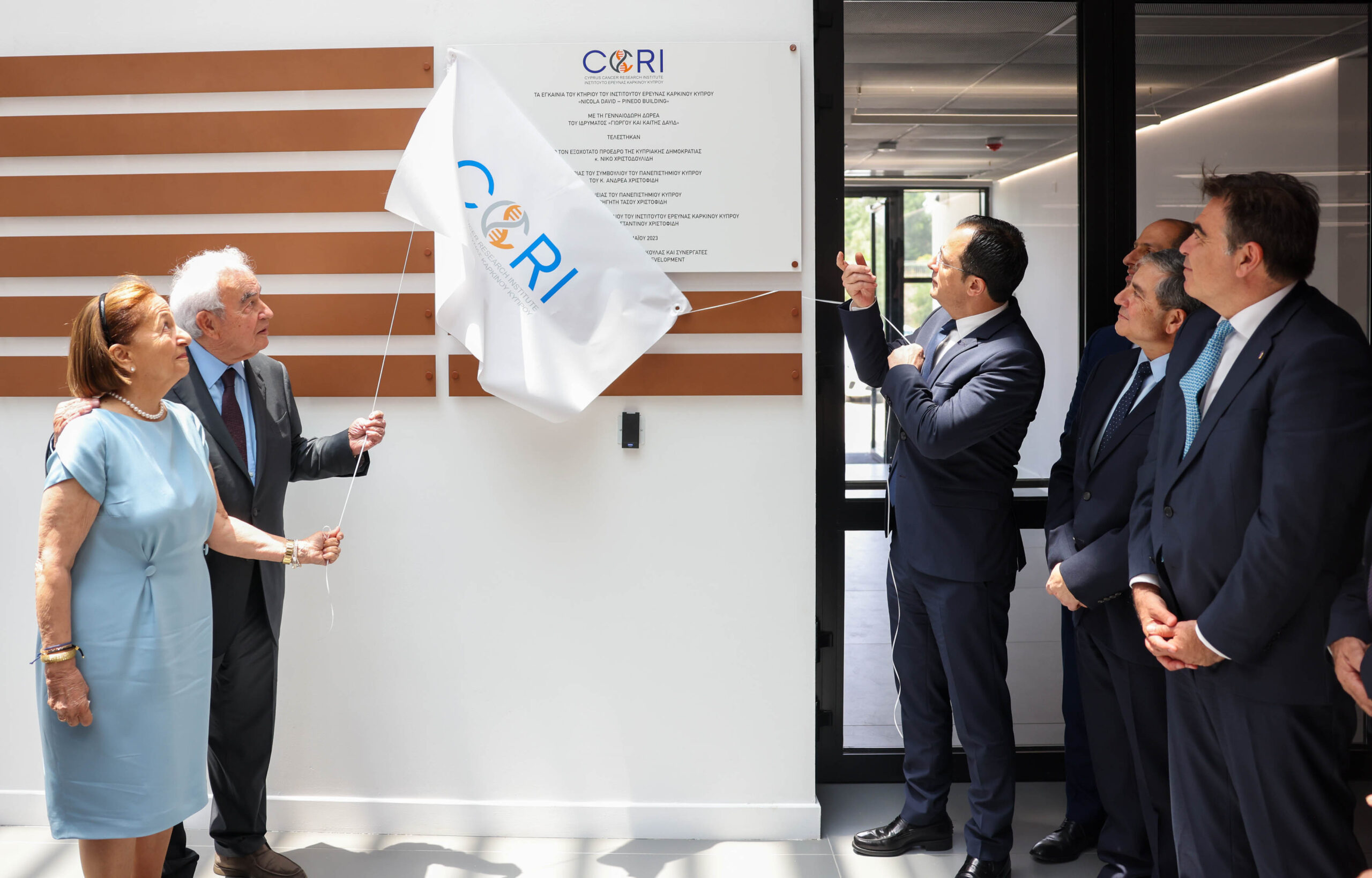Recognising the importance of the Cyprus Cancer Research Institute (CCRI), the government will give its support to develop a national network of excellence, said President Nikos Christodoulides.
He inaugurated the CCRI “Nicola David-Pinedo” building at the University of Cyprus Campus in Nicosia.
The Institute, he said, will be a “beacon” for the country but also an important nucleus for the development of a national network of research excellence, highlighting Cyprus as a centre for cancer research and patient treatment.
The institute aims to promote excellence in cancer research and develop and utilise innovative diagnostic and therapeutic approaches.
The European Commissioner for Health and Food Safety, Stella Kyriakides, and European Commission Vice-President for Promoting the European Way of Life, Margaritis Schinas, attended the event.
The building was named after Nicola David Pinedo, who lost the battle with cancer in 2016. It was constructed with funds from the George and Kaity David Foundation.
President Christodoulides, noting that this was “a selfless act”, said that the CCRI was “an important tool” in the fight against cancer, having the necessary facilities for advanced clinical and translational research.
He said that the state, recognising the importance of the Centre, will promote its institutional support for its better utilisation.
The CCRI’s first goal is to create the National Cancer Research Network, which will bring together all the research groups and units dealing with cancer research in the country.
Commissioner Schinas called it an “emblematic project” for Cyprus and important for Europe.
In the EU, he said, 2.7 million people are diagnosed with cancer annually, and 40% of cases can be treated through early diagnosis, but that, “unfortunately”, only 3% is invested at the European level in health expenditure in promoting prevention and a healthier lifestyle.
He noted that the CCRI was a pan-European centre of excellence, putting Cyprus “at the heart of this great European effort”.
Kyriakides said: “Now the disease is being detected at an earlier stage and treated more effectively.
“This means that today, there are among us more than 12 million of our fellow humans, with experience of cancer” while that number was growing.
George David said that when they lost their daughter in 2016, they decided to give hope, in her name, to those who battle cancer and create an Institute that will promote research and focus on innovation.
“Science today enables even smaller countries with a high standard of education, top calibre scientists and cutting-edge research facilities to contribute to innovative, groundbreaking global research, to make advances and revolutionary science.
“We hope the CCRI will achieve just this”, David said.










